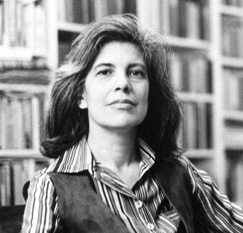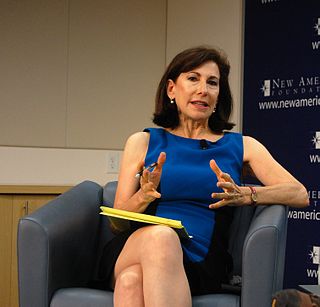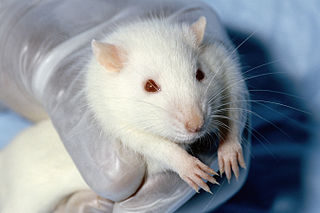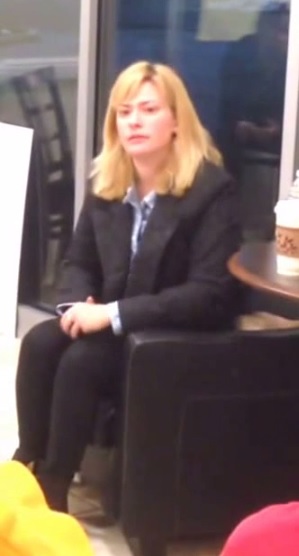Related Research Articles

Burrhus Frederic Skinner was an American psychologist, behaviorist, inventor, and social philosopher. Considered the father of Behaviorism, he was the Edgar Pierce Professor of Psychology at Harvard University from 1958 until his retirement in 1974.

Ursula Kroeber Le Guin was an American author best known for her works of speculative fiction, including science fiction works set in her Hainish universe, and the Earthsea fantasy series. She was first published in 1959, and her literary career spanned nearly sixty years, producing more than twenty novels and over a hundred short stories, in addition to poetry, literary criticism, translations, and children's books. Frequently described as an author of science fiction, Le Guin has also been called a "major voice in American Letters". Le Guin said she would prefer to be known as an "American novelist".

Susan Lee Sontag was an American writer, critic, and public intellectual. She mostly wrote essays, but also published novels; she published her first major work, the essay "Notes on 'Camp' ", in 1964. Her best-known works include the critical works Against Interpretation (1966), On Photography (1977), Illness as Metaphor (1978) and Regarding the Pain of Others, as well as the fictional works The Way We Live Now (1986), The Volcano Lover (1992), and In America (1999).

Pauline Kael was an American film critic who wrote for The New Yorker from 1968 to 1991. Known for her "witty, biting, highly opinionated and sharply focused" reviews, Kael's opinions often ran contrary to those of her contemporaries.

The Rosenhan experiment or Thud experiment was an experiment conducted to determine the validity of psychiatric diagnosis. Participants submitted themselves for evaluation at various psychiatric institutions and feigned hallucinations in order to be accepted, but acted normally from then onward. Each was diagnosed with psychiatric disorders and were given antipsychotic medication. The study was conducted by psychologist David Rosenhan, a Stanford University professor, and published by the journal Science in 1973 under the title "On Being Sane in Insane Places".

Emily J. Yoffe is an American journalist and contributing writer for The Atlantic. From 1998 to 2016 she was a regular contributor to Slate magazine, notably as Dear Prudence. She has also written for The New York Times; O, The Oprah Magazine; The Washington Post;Esquire; the Los Angeles Times; Texas Monthly; and many other publications. Yoffe began her career as a staff writer at The New Republic before moving on to other publications.

Ellen Jane Willis was an American left-wing political essayist, journalist, activist, feminist, and pop music critic. A 2014 collection of her essays, The Essential Ellen Willis, received the National Book Critics Circle Award for Criticism.

Michiko Kakutani is an American writer and retired literary critic, best known for reviewing books for The New York Times from 1983 to 2017. In that role, she won the Pulitzer Prize for Criticism in 1998.

David L. Rosenhan was an American psychologist. He is best known for the Rosenhan experiment, a study challenging the validity of psychiatry diagnoses.

Revolutionary Road is American author Richard Yates's debut novel about 1950s suburban life on the East Coast. It was a finalist for the National Book Award in 1962, along with Catch-22 and The Moviegoer. When published by Atlantic-Little, Brown in 1961, it received critical acclaim, and The New York Times reviewed it as "beautifully crafted ... a remarkable and deeply troubling book." In 2005, the novel was chosen by TIME as one of the 100 best English-language novels from 1923 to the present.

The pit of despair was a name used by American comparative psychologist Harry Harlow for a device he designed, technically called a vertical chamber apparatus, that he used in experiments on rhesus macaque monkeys at the University of Wisconsin–Madison in the 1970s. The aim of the research was to produce an animal model of depression. Researcher Stephen Suomi described the device as "little more than a stainless-steel trough with sides that sloped to a rounded bottom":
A 3⁄8 in. wire mesh floor 1 in. above the bottom of the chamber allowed waste material to drop through the drain and out of holes drilled in the stainless-steel. The chamber was equipped with a food box and a water-bottle holder, and was covered with a pyramid top [removed in the accompanying photograph], designed to discourage incarcerated subjects from hanging from the upper part of the chamber.
David Neil Corfield is a British philosopher specializing in philosophy of mathematics and philosophy of psychology. He is Senior Lecturer in Philosophy at the University of Kent.

Farhad Manjoo is an American journalist. Manjoo was a staff writer for Slate magazine from 2008 to September 2013, when they left to join The Wall Street Journal. In January 2014, they joined The New York Times, replacing David Pogue as the technology columnist. Manjoo became an opinion columnist at the paper in 2018. They have also been a contributor to National Public Radio since 2009.

Dame Hilary Mary Mantel was a British writer whose work includes historical fiction, personal memoirs and short stories. Her first published novel, Every Day Is Mother's Day, was released in 1985. She went on to write 12 novels, two collections of short stories, a personal memoir, and numerous articles and opinion pieces.

Paul Bloom is a Canadian American psychologist. He is the Brooks and Suzanne Ragen Professor Emeritus of psychology and cognitive science at Yale University and Professor of Psychology at the University of Toronto. His research explores how children and adults understand the physical and social world, with special focus on language, morality, religion, fiction, and art.
Penelope Gilliatt was an English novelist, short story writer, screenwriter, and film critic. As one of the main film critics for The New Yorker magazine in the 1960s and 1970s, Gilliatt was known for her detailed descriptions and evocative reviews. A writer of short stories, novels, non-fiction books, and screenplays, Gilliatt was nominated for an Academy Award for Best Original Screenplay for Sunday Bloody Sunday (1971).
Opening Skinner's Box: Great Psychological Experiments of the Twentieth Century, is a book by Lauren Slater.

Susannah Cahalan is an American writer and author, known for writing the memoir Brain on Fire: My Month of Madness, about her hospitalization with a rare auto-immune disease, anti-NMDA receptor encephalitis. She published a second book, The Great Pretender: The Undercover Mission That Changed Our Understanding of Madness, in 2019. When she is not writing longer works, she works as a writer for the New York Post. Cahalan's work has raised awareness for her brain disease, making it more well-known and decreasing the likelihood of misdiagnoses.
Margaret Brenman-Gibson (1918–2004) was an American psychologist, among the first to use of hypnosis in the treatment of neurosis resulting from war and related areas. She was the first non-physician to receive full clinical and research psychoanalytic training in America. In 1982 she was one of the first women to receive a Harvard professorship as Clinical Professor of Psychology. She earned a Masters in Anthropology from Columbia University and a doctorate in Psychology from the University of Kansas. She was the only female psychotherapist on the staff at the Austen Riggs Center and was recognized as a notable member of staff at the organization's centenary anniversary, playing a key role in the organization's establishment as a leading psychiatric hospital and treatment center. Her other work includes a biography of Clifford Odets, and narration of the film Erik Erikson: A Life’s Work. She was married to the playwright William Gibson from 1940 until her death in 2004.
References
- 1 2 "Dr. Lauren Slater, MA, EdD, Concord, MA, 01742". Psychology Today . Retrieved 2021-01-19.
- 1 2 Slater, Lauren. Opening Skinner's Box: Great Psychological Experiments of the Twentieth Century, Norton 2004, ISBN 0-393-05095-5
- ↑ Press, Joy (23 February 2004). "Life is like Skinner's box of chocolates: Slater revisits 20th-century psych's greatest hits". Village Voice (Shrink Rap). Archived from the original on 2007-01-27. Retrieved 27 April 2006.
- ↑ "Office of Communications - Brandeis University" (PDF). www.brandeis.edu. Archived from the original (PDF) on 2005-01-04.
- ↑ "2002-03 Knight Fellows". Massachusetts Institute of Technology. Archived from the original on 2002-10-04.
- ↑ Mental health net book review accessed 20 April 2006
- ↑ BBC Woman's Hour radio interview BBC Mental Health, Drugs & Pregnancy, Woman's Hour, 14 January 2003
- ↑ Slater, Lauren "The Pregnancy Blues" Child Magazine April 2005
- ↑ Lee, Felicia R. "Book's Critique of Psychology Ignites a Torrent of Criticism", The New York Times, April 12, 2004
- 1 2 3 How free is free will? Archived 2005-02-27 at the Wayback Machine Salon.com (on Powell Books) by Farhad Manjoo, 28 May 2004
- ↑ Kihlstrom, John F. New England Journal of Medicine, September 2, 2004
- 1 2 3 4 "Letters about Slater's Book". 2004-08-12. Archived from the original on 2004-08-12. Retrieved 2018-10-18.
- ↑ Corfield, David. "Box Pop", The Guardian, March 27, 2004
- ↑ Miller, Laura. "Unpacking Skinner's Box", The New York Times, May 2, 2004.
- ↑ Skinner Buzan, Deborah. "I was not a lab rat", The Guardian, March 12, 2004
- ↑ Note: Manjoo continued, 'Slater writes that it was actually an "upgraded playpen" whose "thermostatically controlled environment" prevented diaper rash and other kiddie ailments, reduced the chance of suffocation by blanket, and allowed the daughter to walk around without any impediments, building a baby of impressive self-confidence.'
- ↑ Haas, Lidija (February 2018). "New Books". Harper's Magazine . Vol. 336, no. 2013. p. 85.
- ↑ "Wissenschaftsbuch des Jahres". HyperSchool. Archived from the original on 2013-02-06. Retrieved April 14, 2006.
- ↑ "Los Angeles Times Announces Kirsch Award Winner, Book Prize Finalists". Los Angeles Times. March 10, 2005.
- ↑ "Guest Editors of The Best American Essays". The Best American Essays .
- ↑ Note: This book was alternately titled in the UK as Spasm: A Memoir with Lies, Methuen Publishing Ltd, ISBN 0-413-74250-4
- ↑ List of articles on Slater's website Archived 2006-08-07 at the Wayback Machine
- ↑ Note: This essay was also published in The Best American Magazine Writing 2002 (anthology), HarperCollins Publishers, ISBN 0-06-051572-4